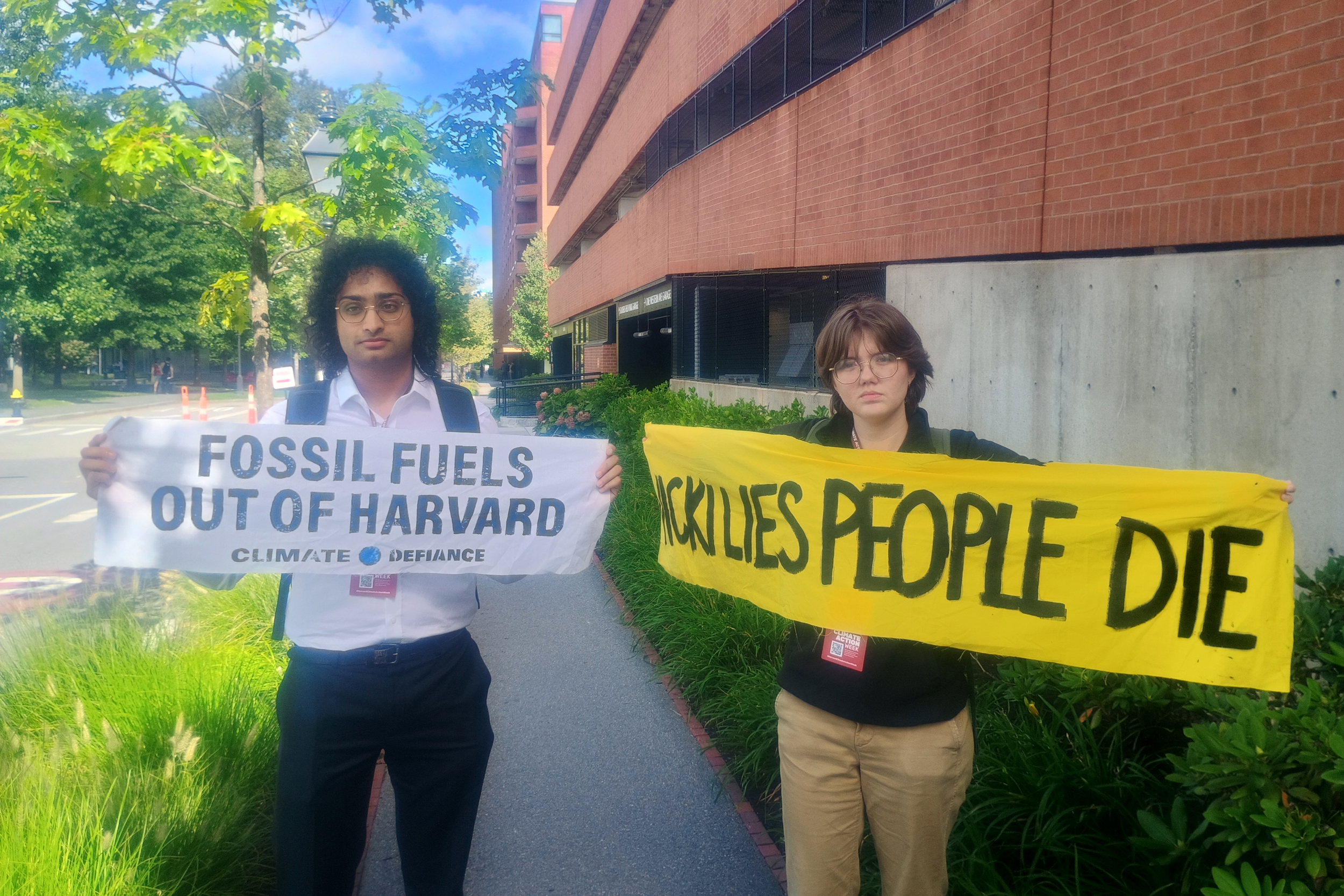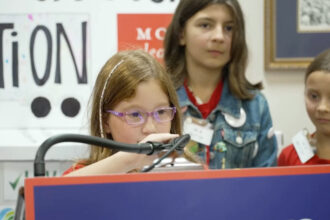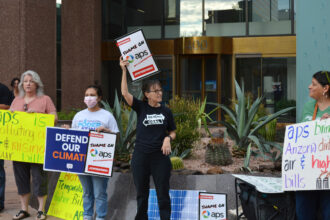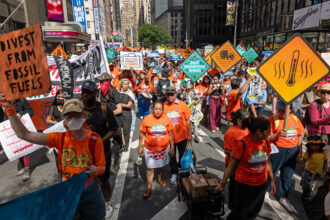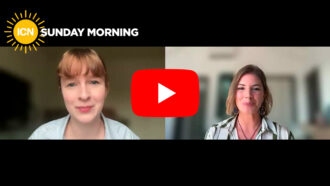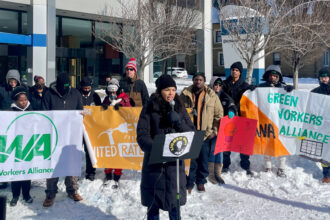Holding signs reading “Vicki Kills The Planet” and “Fossil Fuels Out of Harvard,” activists rushed the stage at a climate symposium at Harvard University on Friday, disrupting a panel discussion with Vicki Hollub, the chief executive officer of oil and gas company Occidental Petroleum.
Hollub was invited to the conference, which was part of “Climate Action Week” at the university, to discuss the role of oil and gas companies in the transition to low-carbon energy.
“When I say transition, I’m not talking about transitioning out of oil and gas,” Hollub said before the disruption. “I’m talking about transitioning in a way that would make oil and gas OK to still produce, meaning finding a way to offset the carbon footprint that we were creating as an industry.”
“When Harvard says it is having Climate Action Week, what does that mean?” Barbara Sheehan, a student at Harvard who participated in the protest, asked following the event. “Does that mean that we are letting oil CEOs come in and dictate what the narrative is? Or are we having the narrative be something that actually encourages clean energy and a just transition?”
Sheehan is a member of the Harvard branch of Sunrise Movement, a climate advocacy organization.
Hollub “said her goal in doing this kind of climate-focused work is not to eliminate the production of fossil fuels, but rather to create a world in which the continued production of fossil fuels is acceptable, and that’s something that for us is unacceptable,” Eshaan Vakil, a Harvard alumnus who participated in the protest, said after being ushered outside.
Vakil is an organizer with Climate Defiance, a climate advocacy organization.
The Intergovernmental Panel on Climate Change (IPCC), a UN body representing the scientific consensus on climate change, concluded nearly a decade ago that a radical transformation of the energy sector was needed to stave off the worst impacts of climate change.
“If everyone agreed on the path towards decarbonization, we wouldn’t be hosting this symposium,” said a spokesperson for Harvard’s Salata Institute For Climate and Sustainability, which organized the event. “It is important to bring together stakeholders and leaders from many backgrounds and perspectives to talk about the energy transition.”
“Trying to make the world a better place is part of what we are trying to do, and we’re spending billions of dollars to make that happen,” Hollub told the audience when the symposium discussion resumed after the protest. “We’re not creating and producing oil to create a market for that oil. What we’re trying to do is meet the demand that the world currently has with better products than what’s being produced in other places in the world. We’re just trying to make it a better industry.”
An Inside Climate News reporter approached Hollub after the panel discussion and asked her for comment on the protest. She didn’t respond.
About This Story
Perhaps you noticed: This story, like all the news we publish, is free to read. That’s because Inside Climate News is a 501c3 nonprofit organization. We do not charge a subscription fee, lock our news behind a paywall, or clutter our website with ads. We make our news on climate and the environment freely available to you and anyone who wants it.
That’s not all. We also share our news for free with scores of other media organizations around the country. Many of them can’t afford to do environmental journalism of their own. We’ve built bureaus from coast to coast to report local stories, collaborate with local newsrooms and co-publish articles so that this vital work is shared as widely as possible.
Two of us launched ICN in 2007. Six years later we earned a Pulitzer Prize for National Reporting, and now we run the oldest and largest dedicated climate newsroom in the nation. We tell the story in all its complexity. We hold polluters accountable. We expose environmental injustice. We debunk misinformation. We scrutinize solutions and inspire action.
Donations from readers like you fund every aspect of what we do. If you don’t already, will you support our ongoing work, our reporting on the biggest crisis facing our planet, and help us reach even more readers in more places?
Please take a moment to make a tax-deductible donation. Every one of them makes a difference.
Thank you,


